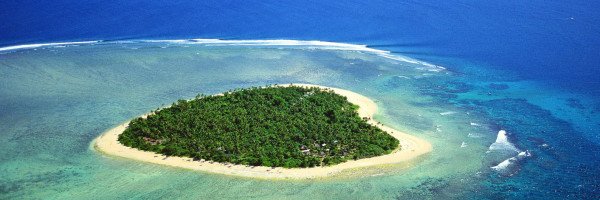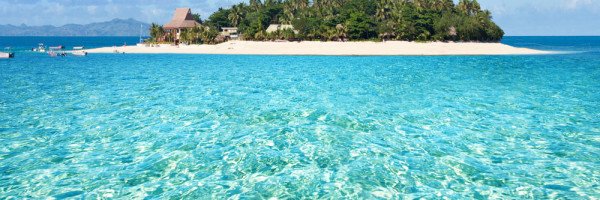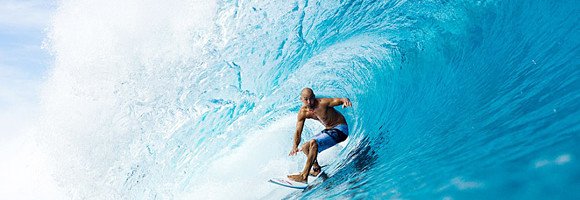Understanding Traditional Fijian Fishing Practices
Traditional Fijian fishing practices are deeply rooted in the cultural and spiritual life of the Fijian people. These methods, often passed down through generations, are not merely about catching fish but are integral to the identity, sustenance, and community of the Fijian way of life. Techniques such as “qoliqoli” (fishing grounds) management, the use of traditional fishing gear, and seasonal fishing practices demonstrate a profound understanding of marine ecosystems. This knowledge emphasizes a sustainable approach that aligns with the principles of conservation and respect for nature. Fiji’s unique marine culture reflects a symbiotic relationship between the people and the ocean. Fishermen use traditional methods that are environmentally friendly, minimizing their impact on fish populations and habitats. For example, the use of bamboo fish traps and nets made from natural materials prevents overfishing and allows fish populations to regenerate. This sustainable approach can serve as a model for other regions, including New Zealand, where similar respect for marine environments is crucial. For more insights into this rich culture, visit Fiji Islands.The Role of Community in Fishing Practices
In Fiji, fishing is a communal activity that fosters cooperation and strengthens social bonds. Villagers often engage in collective fishing trips, sharing the catch among themselves. This practice not only ensures food security but also reinforces community ties. The concept of “moce” (sharing) is essential, as it reflects the collectivist culture prevalent in Fijian society. The importance of community can be seen in how fishing rights are allocated. Each village has designated fishing areas, and respect for these boundaries is paramount. This system is comparable to practices in New Zealand, where Māori communities manage fishing resources through customary rights, promoting sustainability and conservation. Both cultures highlight the significance of local governance in marine resource management. Understanding these communal practices enriches the appreciation of the culture surrounding marine activities. For more information on Fijian communities, check out Fiji Islands.Traditional Fishing Techniques and Their Ecological Importance
Traditional fishing techniques in Fiji include a range of methods such as line fishing, net fishing, and spearfishing. These practices are not only effective but also designed to be sustainable. For instance, the use of “drift nets” allows for the selective capture of fish, thereby reducing bycatch. The timing of fishing activities is also critical; fishermen often align their practices with lunar cycles and seasonal changes, which are vital for understanding fish spawning patterns. Such ecological awareness is mirrored in New Zealand, where indigenous fishing practices also emphasize sustainability. The Māori have long utilized techniques that respect the environment, such as “rahui,” which is a temporary ban on fishing in certain areas to allow ecosystems to recover. By examining these traditional methods, we can appreciate the wisdom embedded in cultural practices that prioritize conservation. To explore more about sustainable fishing in Fiji, visit Fiji Islands.The Impact of Climate Change on Traditional Practices
Climate change poses significant challenges to traditional fishing practices in Fiji. Rising sea levels, increased temperatures, and changing weather patterns affect fish populations and habitats. Fishermen must adapt to these changes, which can disrupt age-old practices that have sustained communities for generations. The Fijian government, in collaboration with local communities, is working on strategies to mitigate these impacts by implementing marine protected areas (MPAs) and promoting sustainable fishing practices. New Zealand faces similar challenges, with its fisheries management adapting to the realities of a changing climate. Both nations are learning to incorporate traditional ecological knowledge into modern conservation strategies, creating a more resilient approach to marine management. For more details on Fiji’s response to climate change, check out Fiji Islands.Education and the Future of Fijian Fishing Practices
Education plays a crucial role in the future of traditional Fijian fishing practices. Initiatives aimed at teaching younger generations about sustainable fishing methods and the importance of marine conservation are vital for preserving this cultural heritage. Schools in Fiji often incorporate marine studies into their curriculum, emphasizing the ecological and cultural significance of the ocean. New Zealand, with its strong focus on educational programs for sustainable fishing, presents a successful model. By fostering a greater understanding of marine ecosystems among youth, both countries can ensure the continuity of traditional practices while promoting conservation efforts. Encouraging local communities to participate in educational programs can lead to a more sustainable future for both Fijian and New Zealand fisheries. To learn more about educational initiatives in Fiji, visit Fiji Islands.Marine Conservation Efforts in Fiji
The Fijian government and local communities are increasingly recognizing the importance of marine conservation. Efforts such as creating marine reserves, promoting sustainable tourism, and engaging in community-led conservation projects are becoming commonplace. These initiatives aim to protect biodiversity and ensure the sustainability of fishing practices for future generations. Similar conservation movements can be seen in New Zealand, where the government has established marine reserves to protect critical habitats. The collaboration between government bodies and local communities is essential in both countries, as shared goals lead to more effective conservation strategies. By learning from each other’s successes and challenges, Fiji and New Zealand can foster more robust marine conservation efforts. For additional information on conservation in Fiji, visit Fiji Islands.Conclusion: The Significance of Traditional Practices in Modern Times
Traditional Fijian fishing practices are not just remnants of the past; they play a vital role in contemporary marine conservation efforts. By integrating traditional knowledge with modern science, Fiji is paving the way for sustainable fishing that respects both cultural heritage and ecological balance. This dual approach is essential for the future of marine ecosystems and the communities that depend on them. New Zealand’s similar focus on integrating indigenous practices into modern fisheries management highlights the global necessity for sustainable resource use. Both countries can benefit from ongoing dialogue and collaboration, sharing knowledge to enhance their fishing practices and conservation strategies. To explore the significance of these practices further, visit Fiji Islands for a comprehensive understanding of the rich marine culture in Fiji.FAQs
What are traditional Fijian fishing practices?
Traditional Fijian fishing practices encompass methods that have been passed down through generations, integrating local knowledge and cultural values. These practices often include the use of handlines, nets, and traps, and are closely tied to the community’s customs and beliefs regarding marine life and conservation.
How do traditional fishing practices contribute to sustainability?
Traditional fishing practices in Fiji are inherently sustainable as they emphasize the careful management of marine resources. Fishermen often follow seasonal patterns and community regulations that prevent overfishing, ensuring that fish populations remain healthy and that the ecosystem is preserved for future generations.
What role does community play in traditional Fijian fishing?
Community is central to traditional Fijian fishing, with practices often carried out collectively. The sharing of resources and knowledge fosters a strong sense of responsibility toward marine conservation, as community members work together to uphold fishing traditions while protecting their environment.
How does Fijian marine culture influence fishing techniques?
Fijian marine culture deeply influences fishing techniques by incorporating spiritual beliefs and respect for the ocean. Many techniques are designed not only for efficiency but also to honor the sea and its creatures, reflecting a cultural ethos that values harmony with nature.
What are the challenges facing traditional Fijian fishing practices today?
Traditional Fijian fishing practices face challenges such as climate change, overfishing by commercial enterprises, and habitat degradation. These factors threaten the sustainability of local fisheries and the cultural heritage associated with traditional fishing methods.
How can traditional fishing practices support marine conservation efforts?
Traditional fishing practices can support marine conservation by promoting biodiversity and ecosystem health. By adhering to age-old practices that prioritize sustainability, Fijian communities can serve as models for conservation efforts, demonstrating how cultural traditions can align with modern environmental goals.
What can visitors learn about Fijian fishing culture?
Visitors to Fiji can gain valuable insights into the rich tapestry of Fijian fishing culture, including the significance of fishing rituals, the importance of sustainable practices, and the community’s deep connection to the ocean. Engaging with local fishermen provides a unique opportunity to appreciate the balance between tradition and conservation in Fijian marine culture.
References
- Fiji Islands – An official tourism site that provides insights into traditional Fijian culture, including fishing practices and their significance in sustainability and marine conservation.
- Traditional Fishing Practices in Fiji: A Sustainable Approach to Food Security – A research paper discussing the sustainability aspects of traditional fishing methods in Fiji and their role in food security.
- Fiji’s Marine Parks: A UNESCO Perspective – An overview of Fiji’s marine conservation efforts, including how traditional fishing practices are integrated into sustainable marine management.
- Fiji: Traditional Fishing Practices and Sustainable Management – An article that explores the relationship between traditional fishing practices and sustainable marine resource management in Fiji.
- Traditional Fishing in Fiji: Sustainability and Conservation – A detailed report by the WorldFish Center on the importance of traditional fishing methods in maintaining ecological balance and promoting conservation in Fiji.







